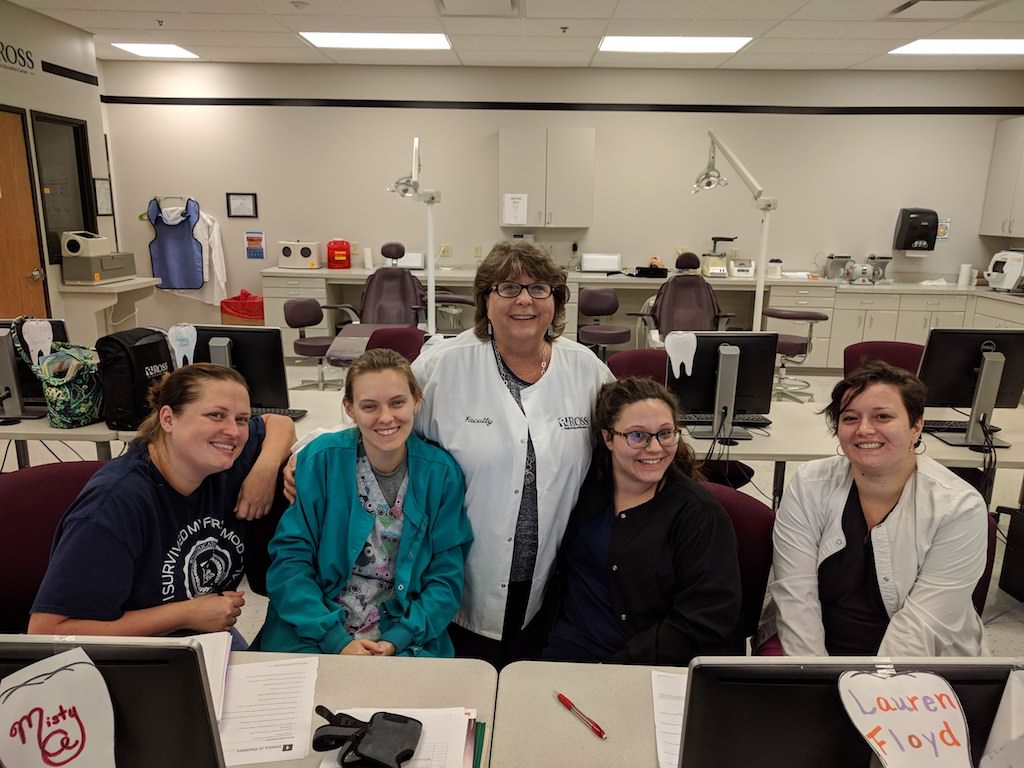 The Knoxville, Tennessee Ross Medical Education Center campus had a very busy quarter! First they hosted the Medic Blood Drive at their campus. During the drive, several students and staff donated blood to help those in the community in need. In fact, eight individuals donated blood and another donated plasma, potentially helping nearly 30 people in need.
The Knoxville, Tennessee Ross Medical Education Center campus had a very busy quarter! First they hosted the Medic Blood Drive at their campus. During the drive, several students and staff donated blood to help those in the community in need. In fact, eight individuals donated blood and another donated plasma, potentially helping nearly 30 people in need.
Then, all students and staff collected back to school supplies and partnered with the Boys and Girls Club of Knoxville. They were thrilled to have 100% participation from the day and evening Dental Assistant classes. Because of the excitement and participation on the campus, approximately 248 items were collected and donated to the Boys and Girls Club by staff, faculty, and students.
 Later, they were also fortunate enough to welcome Officer Watts from the Knoxville Police Department as a guest speaker for all programs. She discussed bullying in the workplace. After presenting a great PowerPoint, she led an interesting and educational conversation with students. During her time at the campus, she discussed self-awareness and personal safety. Some of the topics were being aware of surroundings, correctly carrying keys, basic self defense, keeping phones charged. She made it clear that, If someone is following you, you should confront them from a safe distance and/or call the police. She will be returning back to the campus this quarter to cover more safety and security topics for Knoxville students.
Later, they were also fortunate enough to welcome Officer Watts from the Knoxville Police Department as a guest speaker for all programs. She discussed bullying in the workplace. After presenting a great PowerPoint, she led an interesting and educational conversation with students. During her time at the campus, she discussed self-awareness and personal safety. Some of the topics were being aware of surroundings, correctly carrying keys, basic self defense, keeping phones charged. She made it clear that, If someone is following you, you should confront them from a safe distance and/or call the police. She will be returning back to the campus this quarter to cover more safety and security topics for Knoxville students.
Soon after, the evening Medical Insurance Billing and Office Administration class headed to the University of Tennessee to attend a lecture on the “History and Scope of Anesthesiology” by Robert M. Kraft, M.D., Chairman of the Department of Anesthesiology at University of Tennessee. Evening Medical Insurance Billing and Office Administration student Nicole Brunner shared about the experience, “he introduced us to some of the team of coders that work in his office. He told us that the team here at UT is small but they are quickly expanding. He talked about what anesthesiologists do and that sometimes they are not successful. He talked about various studies, and that some are inconclusive as to why those circumstances exist, but they believe it has something to do with the brain.” Many of the students shared that they learned a lot listening to this expert in the field.
